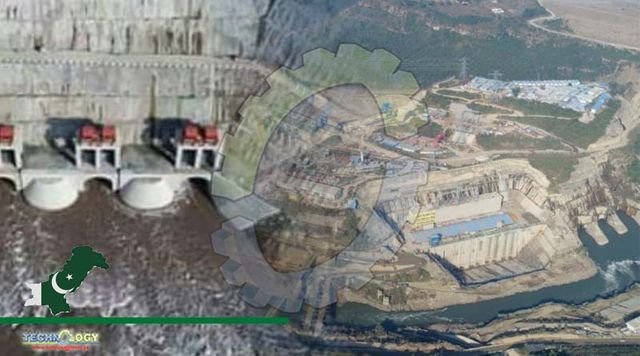The power plant was built by CTG Corporation as part of the China-Pakistan Economic Corridor (CPEC) and is situated on the Jhelum River in Pakistan’s Punjab Province.

Legislators of Pakistan claim that the China-built Karot Hydropower Project is essential to ensuring the nation’s energy security and fostering sustainable and environmentally friendly development.
The power plant was built by the China Three Gorges (CTG) Corporation as part of the China-Pakistan Economic Corridor (CPEC) and is situated on the Jhelum River in Pakistan’s Punjab Province.
According to Muhammad Asad Ali Khan Junejo, a Pakistani lawmaker and member of the Senate’s power committee, China has been helping Pakistan by building numerous power projects across the nation, including hydro, solar, wind, and coal.
The 2013-launched CPEC is a corridor that runs from the port of Gwadar in southwest Pakistan to Kashgar in the Xinjiang Uygur Autonomous Region of northwest China. It focuses on energy, transportation, and industrial cooperation.
In 2013 and 2014, Pakistan experienced a severe energy shortage, making it difficult to quickly meet the demands of millions of people, according to Junejo.
China, he continued, “came to our aid as a trusted friend in our trying times, not only helping the country overcome the energy crisis by producing thousands of megawatts of electricity, but also contributing to the building of road infrastructure, giving impetus to socio-economic development.”
He claimed that the Karot Hydropower Project, which will supply more than 5 million people with electricity, is one of the success tales of the long-standing friendship between Pakistan and China.
Chinese and Pakistani employees collaborated diligently and wisely to complete the project well ahead of schedule in June of last year, he continued.
The hydropower project was praised as a success story of CPEC, which is a success story of the China-proposed Belt and Road Initiative (BRI), by Mushahid Hussain Syed, a senator and the head of the defense committee of the Pakistani Senate.
According to Pakistani representatives from the Karot Hydropower Plant, the Karot Hydropower Project, with a yearly capacity of 3.2 billion kilowatt-hours of clean electricity, is anticipated to save about 1.4 million tonnes of standard coal and reduce carbon dioxide emissions by 3.5 million tonnes annually.
“It has significantly improved Pakistan’s economy and energy security. Thus, we are experiencing high-quality green development that benefits Pakistan’s ecology “Syed said.
Through corporate social responsibility, the project also improved the lives of the locals by constructing local roads, schools, and hospitals. Additionally, 5,000 locals were employed during the project’s construction, either directly or indirectly, according to Syed.
According to Syed Muhammad Sabir Shah, a senator and the head of the water resources committee in the Pakistani Senate, China has been benefiting people in many nations, particularly developing nations like Pakistan, by implementing its people-centric BRI. This is in line with the idea of creating a community with a shared future for all of humanity.
Although Pakistan is endowed with an abundance of water resources, he said, the country needs to improve its water management and conservation practises.
Pakistan can improve its ability to manage its water resources, increase its energy security, and contribute to the realisation of sustainable development objectives through dams like the Karot Hydropower Project, he added.